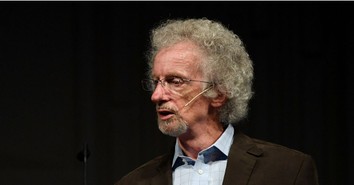3 Ways to Finance God’s Call on Your Life

It takes zero dollars to talk with someone about Jesus. It’s possible to be a missionary right where you’re at. And together, we can also engage the global issues of bringing the gospel to the unreached. Paul the apostle set the example.
“For you remember, brothers, our labor and toil: we worked night and day, that we might not be a burden to any of you, while we proclaimed to you the gospel of God. You are witnesses, and God also, how holy and righteous and blameless was our conduct toward you believers” (1 Thessalonians 2:9–10 ESV).
Paul and his colleagues, Timothy and Silas (also called Silvanus) worked non-ministry jobs while in Thessalonica, to ensure that they would in no way be a burden to the local people (1 Thessalonians 2:9). This decision freed Paul up. By not having to depend on the Thessalonians for provision, he can insist that they live completely for the kingdom of God. He can do so boldly. Today, we can do the same.
We simply have to think creatively about how to finance the ministry God has called us to. Here are three ways to finance your ministry calling, based on Paul’s model. And these three ways also directly apply to the global calling of bringing the gospel to unreached people groups. If you can be smart with your finances, I truly believe that you can both fund the global work God is doing and your local ministry efforts.
1. Self-finance your ministry.
It’s possible to self-finance the ministry God has called you to—with hard work, budgeting, putting your hard skills to work, and self-sacrifice. It’s also possible to begin your local labor for the gospel simply by having conversations with those who don’t know Jesus. Everything grows out of relationships.
It makes good sense to require nothing of a people group who hasn’t yet heard the gospel. It also makes good sense to have a strong reputation among them, working when possible and necessary. And it makes good sense to always operate under the impression that our entire lives are ministries—whether we’re making an income related to that or not, whether we’re self-financing or depending on the support of others.
2. Work a flexible job to supply for your financial needs.
Paul provides us with what could be viewed as a model for ministry. When reaching a new people group, like the Thessalonians, Paul requires nothing of them.
“For you know how, like a father with his children, we exhorted each one of you and encouraged you and charged you to walk in a manner worthy of God, who calls you into his own kingdom and glory” (1 Thessalonians 2:11–12ESV).
Paul finances his ministry in creative ways—in this instance, through working while there—and by getting support of the Philippian church (Philippians 4:15–16). He likely worked making tents for markets and temporary housing (see Acts 18:1–4). Paul models what would later be called bi-vocational ministry.
3. Fundraise via your current church.
At other times, it seems that Paul plans to fund his ministry to a new area by fundraising at a “sending church” (see Romans 15:28; 2 Corinthians 1:16). There are also examples of Paul prompting churches to support relief work happening at other impoverished churches (Romans 15:26–27; 2 Corinthians 8:1–6; Acts 11:29–30).
We need an and-both approach to ministry. You should be a missionary right where you’re at, viewing your day job as bi-vocational to your ministry work of spreading the gospel—and as part of that overall effort. We should also all be part of the global cause of bringing the gospel to unreached people groups. But this does not mean that we should rule out fundraising as an option, for there are also times that we need to be completely devoted to one cause (compare Acts 13:1–3). Whatever the method, self-sacrifice should always be our modus operandi (our mode of operation).
The work of bringing the gospel to the ends of the earth is far from done. There are still millions of people around the world who have never heard the name of Jesus. There are also still millions of people who are un-churched. All Christians need to think of themselves as missionaries, who like Paul are involved in local efforts and global efforts. We need to do what it takes to pursue the call of God on our lives.
Photo Credit: ©Unsplash/Nathan-Dumlao
Originally published January 07, 2019.







